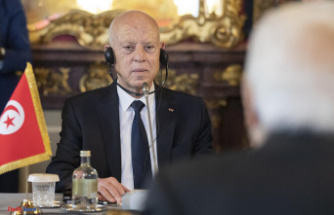Recently, I was showing visitors our brand new, white-walled laboratories at the Malawi-Liverpool-Wellcome Programme (MLW) in Blantyre, Malawi. To show the power of the US$250,000 flowcytometer, I used $250 vials of antibodies that were funded by the UK Medical Research Council. This was done on the first floor overlooking Queen Elizabeth Central Hospital.
People are dying every day because they don't have access to generic antibiotics or a hospital bed. As I hold a reagent that can treat more than 100 patients, and as I gaze out the window at a hospital that has more patients than it actually has, it's hard to not feel guilty.
I am an immunologist at MLW where I direct a research group. I'm also a tenured senior lecturer, UK, at Liverpool School of Tropical Medicine. My research is focused on understanding the immune system of humans, including herd immunity. This will help me to optimize vaccinations.
I keep telling myself that I could be anywhere in the world with the same vials of antibodies, and Queen Elizabeth Central Hospital would still remain underfunded and overcrowded. However, I am in Blantyre so I have to choose between my research and my moral obligations. It is heartbreaking to be able to research antimicrobial resistance with expensive genomic sequencing platforms and not be able to give a generic antibiotic for a patient who has walked many kilometres to get to the hospital.
This is how funding works. As many global-health researchers, although I can spend money on research consumables and kitting out my laboratory, I cannot financially support local infrastructure like hospitals or supplies for medicines. This seems unfair.
After we have navigated the moral maze, there are practical considerations that must be considered when conducting research in Malawi. My lab is able to afford high-end reagents but it takes me at least two months to order and receive an antibody. To be able to order reagents in sufficient quantities and ahead of schedule, I must accurately predict the results of follow-up experiments. Reviewers often demand follow-up experiments for very little value and without taking into account the amount of work that this would require. This becomes a significant challenge. This can have a detrimental effect on science diversity, even though it is not intended. Scientists in these areas are more likely to be able to comply with the law than those at universities in North America or Europe, which have large budgets and are far from any malaria patients.
Funders and publishers must be more aware of the difficulties faced by researchers like me.
Funders might consider splitting existing global health grants to ensure that some money is used for the maintenance and development of infrastructure in clinical care in countries where there is research.
This is something I have seen happen before. Senior leaders from Wellcome, a London-based biomedical funding charity, visited London in 2017 and committed money to Queen Elizabeth Central Hospital for the establishment of the eight-bed high dependency respiratory unit. This unit was a lifesaver for those with severe COVID-19.
The publisher could also provide an area for authors to discuss the restrictions and limitations of research. It could be a brief section called "context of research" in a paper, where authors can describe what it was like to conduct the work and what is or isn't possible. Because of the limited number of critical-care facilities available, I have to avoid repeated invasive sampling when performing bronchoscopy in Malawi. Journals could allow manuscripts to contain this detail. This would help editors and reviewers make better informed decisions about the relative worth of follow-up studies and let them focus on the work that has been done and its potential benefits to human health.
Some may object to special provisions being made for research in low-income areas. There are arguments against funding clinical care as part of research support. If it was, it could dilute funds or cause ethical problems for health professionals. They might feel they have to attract researchers to get the money they need to help patients. Some people also believe that descriptions of logistical problems should not be included in research papers. This could allow for a lack of rigour.
These proposed changes are in support of worthy goals: helping people, and conducting research in real-world situations. The standard for rigour should not be lower simply because researchers have to go through so much. Understanding the context of research is important for interpretation, reproducibility, and application elsewhere. Many funders support research that has a short-term uncertain impact on patients. Perhaps they would be more successful if they supported urgent clinical-care needs. The benefits are greater than the drawbacks.
It is disheartening to see that, if nothing is done about it, the logistical, psychological, and financial burdens of doing excellent research in Malawi will increase. These simple changes could make a huge difference.












